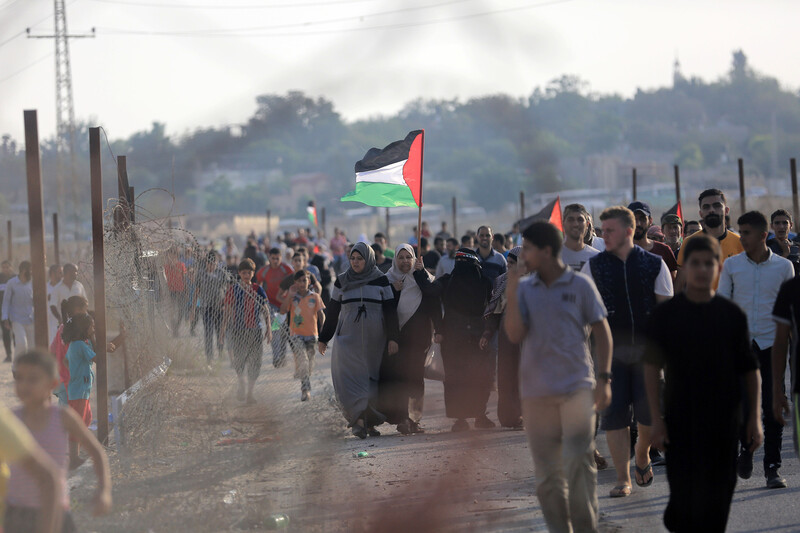Asa Winstanley The Electronic Intifada 1 November 2010
Economist Shir Hever has served as the main author behind a series of pamphlets entitled “The Economy of the Occupation” published by the Alternative Information Center in Jerusalem during the past five years. The pamphlets serve as the basis for Hever’s debut book, The Political Economy of the Occupation. Although the work as a whole is still a little disjointed at times, there are enough flashes of brilliance to make this new book more than worth your while.
Hever has an impressive grasp of the literature and has trawled through a slew of primary and secondary sources and raw data to synthesize a solid analysis of the economic factors behind the Israeli occupation of the West Bank and Gaza Strip. Indeed, The Political Economy of the Occupation abounds with fascinating and original insights.
>> https://electronicintifada.net/content/book-review-understanding-economics-occupation/3601
France has honored Al-Haq and B’Tselem with the prestigious Human Rights
Prize of the French Republic.
Prize of the French Republic.
This came despite heavy pressure from Israel on the French government to
pull the award from the two groups which document Israeli war crimes and
abuses against Palestinians.
pull the award from the two groups which document Israeli war crimes and
abuses against Palestinians.
French justice minister Nicole Belloubet did however give in to the pressure
and refused to attend the award ceremony in Paris last Monday.
and refused to attend the award ceremony in Paris last Monday.
The French Israel lobby group CRIF wrote to Belloubet alleging that the
two winners “call for the boycott of Israel,” and claimed that for the French
justice ministry to give them the award “even in the absence of the minister,
is insulting justice.”
two winners “call for the boycott of Israel,” and claimed that for the French
justice ministry to give them the award “even in the absence of the minister,
is insulting justice.”
In his acceptance speech, B’Tselem executive director Hagai El-Ad
characterized the Israeli government’s response as “hysterical.”
characterized the Israeli government’s response as “hysterical.”
El-Ad said that Israel’s attempt to pressure French officials “illustrates the
reality within which we work: propaganda, lies, and threats by a government
which believes that silencing and coverup will enable further human rights
violations.”
reality within which we work: propaganda, lies, and threats by a government
which believes that silencing and coverup will enable further human rights
violations.”
Al-Haq director Shawan Jabarin told The Electronic Intifada that the award
is a recognition his group’s work at a time when the organization is being
targeted by Israeli smear campaigns.
is a recognition his group’s work at a time when the organization is being
targeted by Israeli smear campaigns.
The 10 December award ceremony coincided with the 70th
anniversary of the Universal Declaration of Human Rights and
the 20th anniversary of the
UN Declaration on Human Rights Defenders.
anniversary of the Universal Declaration of Human Rights and
the 20th anniversary of the
UN Declaration on Human Rights Defenders.








